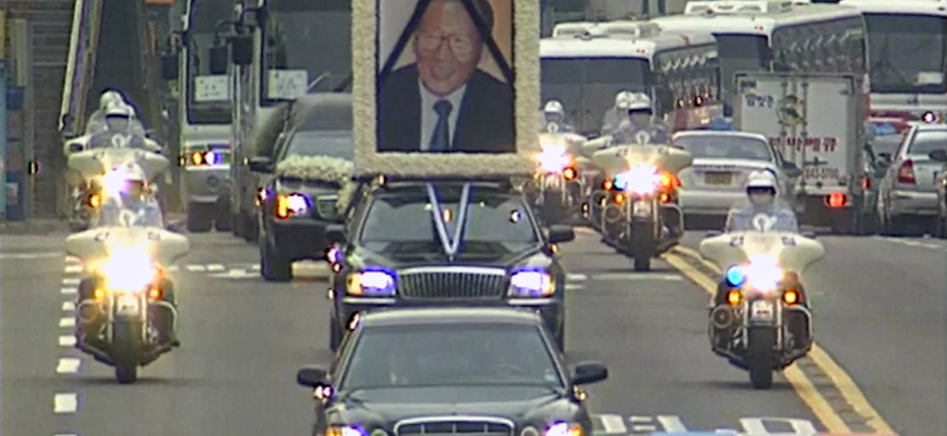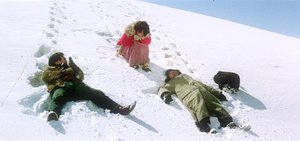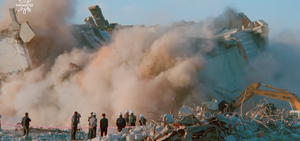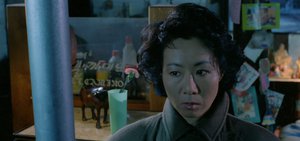The Man Who Would Be a King

Korean Film Nights
[Modern Korea 2, Ep 2]
Korean Film Nights presents four episodes of the television documentary series Modern Korea 2, produced by the KBS television channel. Each episode uses footage selected from the vast KBS archives to create compilation narratives that look back at the social, political, and cultural themes that have marked Korea’s history over the decades.
The footage and images of the series are edited from news broadcasts, TV documentaries, popular entertainment shows and fictional dramas. The choice of themes, focusing on lesser-known events, and its sober use of footage and editing, construct a complex view of Korea in the 1980s and 1990s. Heading to its third season, Modern Korea has thus far covered topics such as the 1997 Asian Financial Crisis and the IMF bailout, histories of education and the birth of a teacher’s union, the tragic collapse of the Sampoong Department Store in 1995, among many others. The series provides a window into Korean history through images produced by public television broadcasters.
The screening includes the first two episodes of the second season of the series, which focus on events of the 1990s, such as the debates leading up to the destruction of the former Japanese General Government Building in Seoul and the presidential candidacy of businessman Chung Ju-Yung in 1995. The KCCUK will screen other episodes from this series, including The Age of Beasts, about the struggle for women’s rights in the late 1980s, and K-pop Genesis, about the history of Korean pop music in the 1980s.
[Modern Korea 2, Ep 2] The Man Who Would Be a King
왕이 되려던 사나이
This episode focuses on the 1992 election of the 14th president of the Republic of Korea and the failed candidacy run of Chung Ju-yung, the founder and then honorary CEO of the Hyundai Group conglomerate. Starting with the death of Chung Ju-yung, the film explores his role in the consolidation of Korea’s economic and industrial strength as well as his public personality as displayed in interviews and debates broadcasted on public television throughout the years leading up to his candidacy. The documentary draws a broader picture of Korean society in the early 1990s, with its labour struggles, housing crisis and numerous other problems. By focusing on the election and the later years of Chung Ju-yung’s life, the film addresses the many contradictions underlying the period of high-growth in Korea and the culture of conflation between business and politics that enabled them.
Ricardo Matos Cabo




